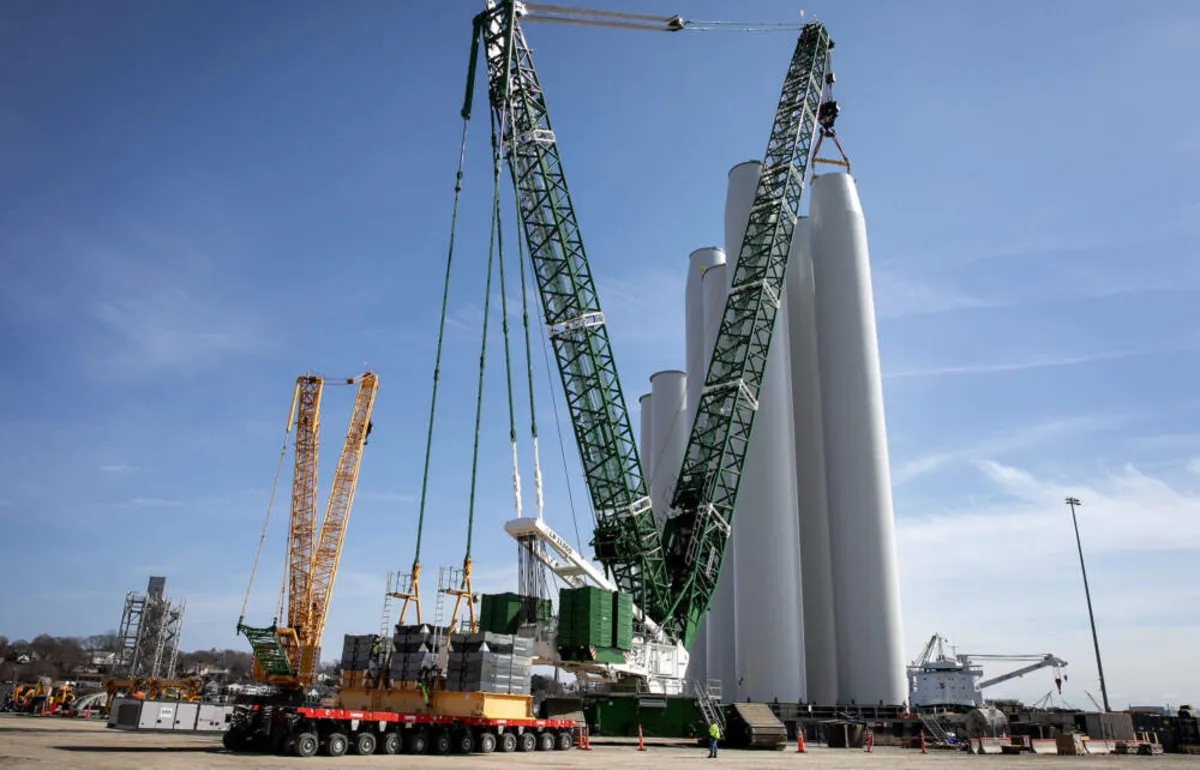
A federal judge has ruled that work can resume on Revolution Wind, a significant offshore wind farm project located near Rhode Island. The construction had been halted since August 22, when the Trump administration issued a controversial stop-work order. This order represents a rare, albeit temporary, victory for the offshore wind industry, which has faced numerous challenges from the previous administration.
In a decisive move, Judge Royce C. Lamberth of the U.S. District Court for the District of Columbia issued a preliminary injunction in favor of Revolution Wind. He characterized the construction pause as the "height of arbitrary and capricious action." The judge pointed out that while the government cited potential national security concerns regarding the project, it failed to provide any factual findings or valid reasons for the work stoppage.
Judge Lamberth emphasized the financial impact on the project’s developer, Ørsted, which was reportedly losing at least $2.3 million per day during the delay. He also highlighted the human cost, noting that hundreds of workers were left without jobs while the project remained in limbo. "There is no question in my mind of irreparable harm to the plaintiffs," he stated.
While the judge's ruling allows construction to restart, it does not conclude the lawsuit over the stop-work order, which will continue to be litigated. Ørsted has announced that it will resume impacted construction work as soon as possible, prioritizing safety. Meanwhile, the Bureau of Ocean Energy Management, which issued the stop-work order, has indicated that it may challenge the injunction and will continue its investigation into potential national security impacts of the project on the Outer Continental Shelf.
Revolution Wind is a comprehensive project featuring 65 turbines designed to generate a total of 704 megawatts of power for Rhode Island and Connecticut, sufficient to supply electricity to approximately 350,000 homes starting next year. The project received its final federal permits in 2023 and has been utilizing a revitalized port in New London, Connecticut, for staging operations. At the time of the stop-work order, Ørsted had already invested around $5 billion and had completed approximately 80% of construction.
Connecticut Governor Ned Lamont expressed his satisfaction with the judge's decision, calling it "good news" for consumers. He projected that once the project is operational, it could save ratepayers in the state about $500 million annually. "If you want to talk about the birds and the fish and national security, we can do that," Lamont added. "But in the meantime, let's get back to work."
Rhode Island Attorney General Peter Neronha also praised the injunction, asserting that the President cannot cancel clean energy projects for political reasons. In a separate legal action, Rhode Island and Connecticut have filed suit against the Trump administration over the stop-work order, with Neronha emphasizing the urgency of getting the project operational again to meet energy needs in New England.
In New London, Mayor Mike Passero expressed his excitement over the ruling, stating, "It's been a long month, and we're so close to the end of this project." He noted that Ørsted still has its construction workforce in place, which should facilitate a swift resumption of work.
Wind energy advocates across New England celebrated the court's decision, viewing it as a reaffirmation of the rule of law against what they deem a reckless attempt to stymie progress in clean energy. Kate Sinding Daly, senior vice president for law and policy at the Conservation Law Foundation, remarked, "This ruling confirms what we’ve known all along — that the Trump administration’s attempt to stop Revolution Wind is not only a violation of the law but a dramatic overreach."
Revolution Wind is one of several large offshore wind projects currently under construction along the Atlantic Coast. Many New England states are relying on renewable energy from these offshore wind initiatives to provide vital power, create jobs, and stimulate economic growth. Under the Biden administration, these projects have received substantial support, contrasting sharply with the previous administration's opposition to offshore wind.
In recent weeks, the Trump administration has attempted to revoke key permits for additional wind projects, including SouthCoast Wind near Massachusetts and US Wind near Maryland. Legal documents indicate that permits for another Massachusetts project, New England Wind, may also be revoked soon.